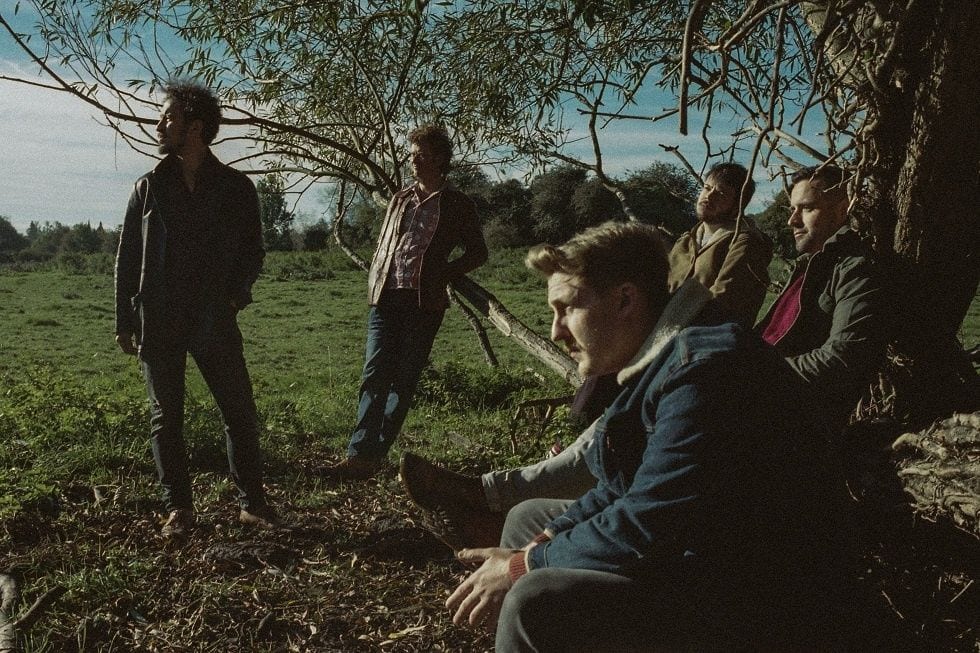
Mamas Gun is having quite a reflective moment. Fronted by singer-songwriter Andy Platts, this London-based quintet of soul-pop revivalists have officially been an active recording outfit for more than a decade now, putting out three albums of modernized R&B sounds with a warm, feel-good vibe. While the band consists of established studio musicians (including Platts himself, who’s played on recordings for everyone from Corinne Bailey Rae to Beyoncé, as well as being the author of a few hits for K-Pop artists), their chemistry has always been their calling card.
If Platts name sounds familiar to some PopMatters readers, that might be because he’s also one half of the duo Young Gun Silver Fox, whose AM soft-rock throwback debut West End Coast topped our Best Pop Albums of 2016 list. The other half of that outfit, uber-producer Shawn Lee, helped mix Golden Days, Mamas Gun’s fourth full-length, just released.
Golden Days is just as lively and collaborative as the group’s last few albums, and to help celebrate the release, Platts sat down to pick his own Fave Five albums of a particular category. Platts’ choice? The “Five Albums Where the Voice Is King”. As you can tell by his selections, Platts and his bandmates are deep scholars of soul music’s long and colorful past, and that love of the genre shines through in Golden Days‘ best moments. Now strap in, because this Gun is about to go off.

Aretha Franklin – Live at Fillmore West (1971)
When Aretha Franklin’s voice breaks and splits on her slow-burning rendition of Paul Simon’s “Bridge Over Troubled Water”, it’s the sound of someone bursting with pure music — her vocal cords are firing at peak capacity and the senses of joy, hope, and elation are absolutely thrilling. The album is worth collecting for the performance of this song alone. Sometimes in her career when she has covered popular songs, the songs have got lost in the histrionics and improvisation, but in this performance, the song and artist and voice come together as one to make something very special indeed.

Curtis Mayfield – Curtis/Live! (1971)
Another fine live recording in which the rolling analog tape managed to capture a fiercely intimate show at New York’s Bitter End club venue. Though many of the songs featured like “We’re a Winner” and “Don’t Worry” are well known as classic studio recordings — which I also love — it’s the live aspect which really brings a different slant to the proceedings. His classic “Gypsy Woman” gets a raw funkier treatment here, which works, but the lesser known cover of the Carpenters’ saccharin sweet hit “We’ve Only Just Begun” reveals a beautiful rawness and frailty to Mayfield’s voice which seems ironed just out of reach in the studio. My favorite version of that song, no doubt.

Sly & The Family Stone – There’s a Riot Goin’ On (1971)
This is hands-down a stone cold beast of a record. At one end of the spectrum, analog tape recordings can sound pristine — the bandwidth of tape allowing instruments to shine and coalesce in sonic perfection. Think of the Doobie Brothers “What a Fool Believes” or any of Steely Dan’s impeccably recorded output. However, this record is what tape sounds like when it gets abused in the best possible way (according to the myths). Regardless of how Sly & co arrived at their final master mixes, all these recordings are imbued with so much sweat, goo, and rubbery-ness that it’s the perfect compliment for Sly’s high animalistic screams and baritone growls. His phrasing is so free and off-kilter, yet so in control and in charge, that’s it’s likely to be the hippest thing you’ll ever hear coming from a human being’s mouth. What I also love about this record is the perfect marriage of crafted “rock-influenced” melodic songwriting with the uplifting all-out freedom of gospel, roots, soul, and R&B. It’s utterly addictive and was a complete game changer for me when I first heard it. What was it about the music made in 1971?

Scott Walker – Scott 3 (1969)
Some albums you return to again and again. I return to
Scott 3 repeatedly for the comfort in the familiar, for an otherworldy reminder of how great music can be, and above all, quite simply, to be moved. It takes something very special, within an artistic context, for something to move you. The bubble of existence is rarely pricked by something so exquisite as to literally pause time. The unusual approach to composition, the delicately pitched orchestral arrangements, the reverbs, the atmosphere, that voice (that voice!) … all combine to create an extraordinary piece of work. Scott 4 which succeeds Scott 3, sits not far behind it, but Scott 3 will forever hold a special place in my consciousness.

Jimmy Scott — Falling in Love Is Wonderful (1962)
As a youngster, Jimmy Scott was struck with Kallmann syndrome — a rare disorder which meant that he never underwent puberty and was left with a high voice until his death at 88 years old in 2014. It’s this fact which always makes listening to Jimmy Scott’s music so heartbreaking. I feel like the sense of what-might-have-been is almost tangible in his approach to performance. The first time I ever heard his version of Irving Berlin’s “They Say It’s Wonderful” was completely mindblowing. Not least because at first, I thought it was a woman. He was a favorite of people like Marvin Gaye, Ray Charles, and Billie Holliday, and it’s easy to see why. There is something there when his voice coils around you via the speakers, which is so irrepressibly emotional, that you cannot fail to be moved upon listening.

